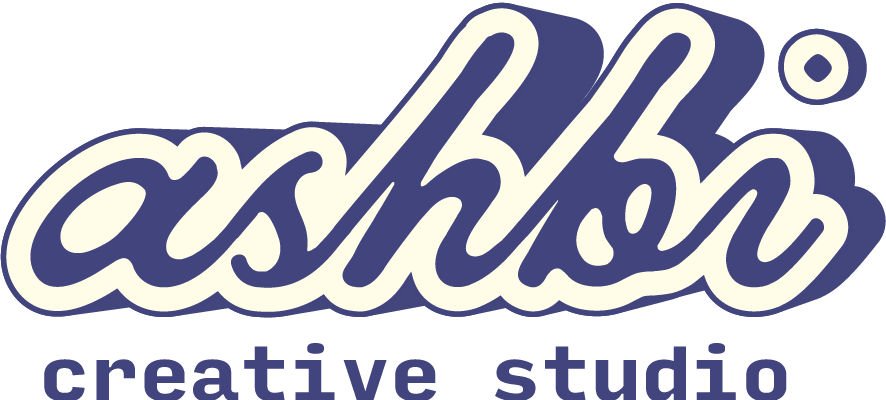Imagine this: you’re scrolling through your favorite social media platform, and amidst the sea of posts, advertisements, and blogs, you stumble upon a captivating article that piques your interest. This article is part of a content marketing campaign, with attention-grabbing headlines designed to attract readers’ attention. You click on the landing page, expecting another run-of-the-mill marketing pitch, but instead, you find yourself immersed in customer stories that resonate with you. The helpful content takes you through the customer journey. The article provides valuable tips and information on certain topics, giving helpful insights on keywords you’ve been curious about for ages. It’s not just an ad; it’s a genuine effort to engage and educate in our content marketing campaign. We aim to utilize offline content marketing to promote our product effectively.
Welcome to the world of content marketing in digital marketing blogs! In this article, we will explore how to create compelling blog posts that effectively promote your product. By strategically incorporating relevant keywords into your blogs, you can boost your online visibility and attract more potential customers. So let’s dive into the world of content marketing and discover the power of keywords in driving success for your product. It’s a strategic marketing approach that focuses on creating and distributing great content – articles, blog posts, ebooks, white papers – across various online platforms to optimize the product page with relevant keywords. The goal? To attract and engage offline content marketing customers like you by providing them with useful product information they actually want in the funnel content.
Content marketing goes beyond traditional advertising; it’s all about building trust, credibility, and brand awareness among customers. By incorporating relevant keywords into your content, you can effectively promote your product and attract more business. By crafting compelling stories around certain topics or market trends, businesses can connect with their target audience on a deeper level through offline content marketing. This strategy helps promote the product and effectively incorporate relevant keywords to attract and engage the customer. Whether it’s through informative blog posts or attention-grabbing headlines in ads or landing pages, content marketing offers brands an opportunity to establish themselves as thought leaders in their industry. By strategically incorporating relevant keywords into their online content, brands can attract more customer attention and increase product visibility.
In the ever-evolving digital landscape, effective content marketing with relevant keywords has become essential for businesses to stand out from the online crowd and capture customer attention for their products. So buckle up as we delve into the world of online content marketing and explore how it can revolutionize your digital strategy. With the right keywords, your email funnel can take your digital strategy to new heights.
Importance of Content Marketing in Digital Marketing
Keywords play a crucial role in online content marketing. It is essential to include relevant keywords in your email campaigns to attract and engage your customer base. Ignoring the importance of keywords can have a negative impact on your digital marketing efforts. Content marketing plays a crucial role in driving organic traffic to online websites and improving search engine rankings. By strategically incorporating relevant keywords into your funnel content, you can optimize your website for better visibility and increased online presence. By consistently creating valuable marketing content, businesses can attract more online visitors to their websites, resulting in increased visibility and brand recognition among people.
One of the primary benefits of online content marketing is its ability to establish businesses as industry leaders. By strategically using relevant keywords, businesses can reach a wider audience and attract more people to their website. For example, optimizing blog posts with targeted keywords can improve search engine rankings and drive organic traffic to a website. This increased visibility not only positions businesses as experts in their field but also increases the likelihood of attracting potential customers. By sharing valuable insights and expertise through blog posts, articles, videos, or podcasts, companies can position themselves as trusted sources of information within their respective fields. This is the power of content marketing. By strategically incorporating relevant keywords into their content, companies can attract more people to their website and engage them throughout the funnel content. This not only helps build credibility but also fosters trust among potential customers in the context of content marketing. For example, funnel content can be a powerful tool to engage people. When people perceive a business as knowledgeable and reliable, they are more likely to engage with its products or services. This is a prime example of how content marketing can be effective in guiding individuals through the funnel content.
Furthermore, people use effective content marketing to nurture leads throughout the customer journey. By providing valuable marketing content to people at each stage, from awareness to consideration and decision-making, businesses can guide prospects towards making a purchase. For instance, content marketing such as informative blog posts or educational videos can address common pain points or questions that people use in the funnel content for potential customers. By addressing these concerns directly and offering solutions, businesses can build trust and increase the likelihood of conversions through content marketing. Content marketing allows businesses to connect with people and provide valuable information that can address their needs and interests. This approach helps establish credibility and fosters a relationship with the target audience, ultimately driving conversions.
In today’s digital landscape, where people have access to vast amounts of information at their fingertips, content marketing has become essential for standing out from the competition. With so many choices available online, businesses need to differentiate themselves by offering unique and valuable marketing content that captures the attention of people, their target audience. Whether it’s through entertaining videos, informative articles, or engaging social media posts, creating valuable content allows businesses to cut through the noise and leave a lasting impression on people. This marketing strategy helps businesses connect with their audience effectively.
To fully grasp the importance of content marketing in digital marketing strategies, let’s delve deeper into each talking point and understand how it impacts people.
Driving Organic Traffic and Improving Search Engine Rankings
Valuable content serves as bait for attracting organic traffic to websites and is essential for successful marketing. It is a powerful tool that can engage and resonate with people, ultimately driving more traffic to your site. When people search for marketing information related to a business’s industry or niche on search engines like Google, having high-quality marketing content increases the chances of appearing in marketing search results. By incorporating relevant keywords, businesses can optimize their content for search engine optimization (SEO) and reach more people through effective marketing strategies. This means that when people search for a specific topic, the search engine is more likely to display the business’s website among the top results in content marketing.
Creating valuable content in marketing encourages other websites and people to link back to it. These inbound links, also known as backlinks, are crucial for improving search engine rankings in the context of content marketing. People rely on these links to drive traffic to their websites and increase their online visibility. When reputable websites link to a business’s marketing content, search engines perceive it as a vote of confidence and credibility from people. As a result of implementing content marketing strategies, the business’s website gains authority and climbs higher in search rankings, reaching more people.
Establishing Industry Leadership through Valuable Insights
Content marketing allows businesses to showcase their expertise to people and establish themselves as industry leaders. By consistently producing valuable insights and sharing them with people, businesses can position themselves as go-to sources for information within their niche through content marketing. Whether it’s through thought-provoking blog posts or informative whitepapers, content marketing offering unique perspectives and actionable advice helps build trust and credibility.
When businesses excel in content marketing and become recognized authorities in their industry, they not only attract potential customers but also media attention. Journalists seeking expert opinions or quotes often turn to industry leaders who have established themselves through valuable marketing content. This media exposure further amplifies brand visibility and generates additional opportunities for growth in content marketing.
Effective implementation of content marketing
To achieve effective content marketing in the realm of digital marketing, there are several key factors to consider. By understanding the target audience, developing a well-defined content strategy, creating high-quality and engaging content, and regularly analyzing data and metrics, businesses can optimize their content marketing efforts for success.
Understanding the target audience is essential for effective content creation and distribution.
One size does not fit all. To truly connect with your audience in the realm of content marketing, you need to understand who they are and what they want. By conducting thorough research and building buyer personas, you can gain insights into their demographics, interests, pain points, preferences, and how to effectively target them with content marketing. This marketing knowledge allows you to tailor your marketing messaging and create relevant marketing content that resonates with your target audience.
Moreover, understanding your marketing audience helps determine which marketing channels are most effective for distributing your marketing content. For example, if your target audience primarily consists of young professionals who spend a significant amount of time on social media platforms like Instagram or LinkedIn, then focusing on social media posts as part of your marketing strategy would be beneficial. By delivering the right marketing content through the right marketing channels at the right time, you increase the chances of reaching and engaging with your intended marketing audience.
Developing a well-defined content strategy ensures consistency in messaging across different channels.
A successful content marketing campaign requires a solid plan in place. This is where having a well-defined content strategy becomes crucial for marketing. Your strategy should outline clear objectives aligned with your overall marketing goals while considering each stage of the customer journey or sales funnel.
Attracting potential customers during the awareness stage of content marketing might involve creating informative blog posts or videos that address common pain points within your industry. As prospects move further down the content marketing funnel towards consideration and decision-making stages, providing them with more detailed content marketing guides or case studies can help build trust and establish credibility.
Consistency is key. Ensuring consistent messaging is essential for effective content marketing across various channels and platforms. This consistency reinforces brand identity and fosters recognition. By maintaining a cohesive voice, style, and tone throughout your marketing content, you create a sense of reliability and trustworthiness in the eyes of your audience.
Creating high-quality and engaging content that addresses the needs and pain points of the target audience is key.
In the vast digital landscape of marketing, where attention spans are limited, it is crucial to produce high-quality marketing content that captivates your target audience. To achieve effective content marketing, it is crucial to conduct thorough research on topics that resonate with your audience’s interests and pain points. By understanding what marketing challenges they face or what marketing information they seek, you can create marketing content that provides value and solutions.
Successful content marketing involves more than just producing written articles or blog posts. Content marketing extends to various formats such as videos, infographics, podcasts, or interactive quizzes. By diversifying your marketing content types, you cater to different preferences within your target audience while keeping them engaged.
Engagement in content marketing goes beyond simply delivering information; it involves creating an emotional connection with your audience. Incorporating storytelling techniques or real-life examples can help make your marketing content relatable and memorable. When people feel connected to your marketing brand through compelling stories or personal experiences shared in your marketing content, they are more likely to engage with it by sharing, commenting, or taking desired actions.
Regularly analyzing data and metrics helps optimize content performance and make informed decisions.
Choosing the Right Formats and Channels
Choosing the right formats and channels is crucial for success in content marketing. Different types of marketing content formats, such as blog posts, videos, infographics, and podcasts, offer unique ways to engage with audiences and deliver your marketing message effectively.
- Different Types of Content Formats:
Content marketing provides many ways to connect with your target audience. Blog posts are an excellent option for providing detailed information on specific topics in the realm of content marketing. Content marketing allows you to share in-depth guides, tips, and insights that can position your brand as an authority in the industry. Videos are another powerful format for content marketing that can captivate viewers’ attention and convey complex ideas visually. Infographics are perfect for content marketing, presenting data in a visually appealing manner. They make it easier for your audience to understand complex concepts at a glance. Podcasts provide a marketing opportunity to reach audiences on-the-go who prefer audio content.
- Selecting Appropriate Channels Based on Target Audience’s Preferences:
Choosing the right channels is essential for maximizing reach and engagement potential in content marketing. Understanding your target audience’s preferences in content marketing will help you identify which platforms they frequent the most. Social media platforms like Facebook, Instagram, Twitter, and LinkedIn are great options for sharing bite-sized updates and engaging with your audience directly through comments and shares. This is especially important for effective content marketing. Blogs are a valuable tool for content marketing, as they provide an opportunity to deliver detailed information while simultaneously optimizing your website’s SEO potential.
- Each Channel Has Its Own Strengths:
It’s important to recognize that each channel has its own strengths when it comes to content marketing. Social media platforms excel at delivering quick marketing updates or sharing visually appealing marketing content like images or short marketing videos that grab attention as users scroll through their feeds. Blogs are a powerful tool for content marketing, as they provide a platform for sharing long-form articles filled with valuable insights. This can effectively drive traffic back to your website.
- Strategic Combination of Formats and Channels:
To achieve optimal results from content marketing efforts, a strategic combination of formats and channels should be chosen based on your business goals. For example, if your goal is to increase conversions through content marketing, you may want to focus on creating engaging videos that showcase your products or services and share them on social media platforms with high conversion rates. On the other hand, if you aim to educate your audience about a complex topic in the realm of content marketing, an in-depth blog post supplemented with an infographic can provide the necessary information while keeping readers visually engaged.
Creating a Content Marketing Calendar and Distribution Plan
A well-planned marketing editorial calendar ensures consistent delivery of fresh marketing content at regular intervals.
Having a solid plan is crucial. A content marketing plan outlines the strategy and tactics that will be used to create and distribute valuable, relevant, and consistent content to attract and retain a clearly defined audience. One essential component of this content marketing plan is creating an editorial calendar.
An editorial calendar serves as a roadmap for your content creation efforts. It helps you stay organized by mapping out topics in advance and ensuring that you have a steady stream of engaging content throughout your marketing process. By planning ahead in content marketing, you can maintain relevancy and avoid scrambling for ideas at the last minute.
To create an effective editorial calendar for content marketing, start by brainstorming topics that align with your target audience’s interests, pain points, and preferences. Consider conducting keyword research as part of your content marketing strategy to identify popular search terms related to your industry or niche. This will not only help you generate ideas but also optimize your content for search engines.
Once you have a list of potential topics for your content marketing, categorize them based on themes or subtopics. This will allow you to create a cohesive narrative across your content pieces while catering to different aspects of your target audience’s needs. For example, if you run an e-commerce store specializing in skincare products, some categories for your content marketing strategy could include skincare tips, product reviews, ingredient spotlights, and beauty routines.
Next, assign publication dates or timeframes to each content marketing topic based on their relevance or alignment with upcoming events or trends in your industry. This step ensures that you have a balanced mix of evergreen and timely content throughout the year. Consider incorporating seasonal content marketing campaigns or promotions into your calendar to capitalize on peak buying periods.
A distribution plan outlines how and where the content will be shared to reach the target audience effectively.
Creating great content is only half the battle; getting it in front of the right people is equally important. That’s where a distribution plan comes in. A distribution plan outlines the channels and tactics you will use to share your content with your target audience.
Start by identifying the platforms or channels that are most relevant to your audience for content marketing. This could include your website, blog, social media platforms, email newsletters, industry forums, or even guest posting on other websites as part of your content marketing strategy. Each channel has its own unique advantages in content marketing and can help you reach different segments of your target audience.
For example, social media platforms like Facebook, Instagram, Twitter, and LinkedIn can be great for reaching a broad audience and driving engagement through content marketing likes, comments, and shares. On the other hand, email newsletters in content marketing allow you to directly communicate with subscribers who have already shown interest in your brand or products.
Once you’ve identified the channels you’ll use, create a schedule for sharing your content across these platforms. Consider factors such as optimal posting times for each platform and how frequently you want to engage with your audience in your content marketing strategy. Scheduling content releases across different channels helps maintain a steady flow of engagement while maximizing exposure.
Remember that not all content pieces may be suitable for every channel. Tailor your content to fit the specific platform’s format and preferences. For instance, visual-heavy content might perform well on Instagram or Pinterest, while informative articles may be better suited for LinkedIn or your blog.
Utilizing video and audio content effectively
Engaging Audiences with Video Content
Video content has become increasingly popular in the realm of digital marketing, offering a dynamic and visually appealing way to communicate messages. With the rise of platforms like YouTube and the prevalence of social media, businesses have recognized the power of videos in capturing audience attention through content marketing. By leveraging video content, companies can effectively convey their brand story, showcase products or services, and engage with their target market.
Videos provide a unique advantage by allowing businesses to tap into the storytelling aspect of marketing. Through visuals, motion graphics, and compelling narratives, videos in content marketing create an immersive experience for viewers. Whether it’s a tutorial demonstrating how a product works or an emotional advertisement that resonates with audiences’ experiences, video content has the ability to evoke emotions and leave a lasting impact on viewers.
To make videos more discoverable by search engines, it is crucial to optimize them using relevant keywords and metadata. This ensures that videos appear in search results when users are looking for related content. By incorporating keywords strategically throughout titles, descriptions, and tags, businesses increase their chances of reaching a wider audience who are actively searching for information or solutions related to their products or services.
Embracing the Podcasting Trend
In addition to video content, audio formats such as podcasts have gained significant popularity in recent years. Podcasts offer a convenient way for audiences to consume information while multitasking or on-the-go. By incorporating podcasts into their digital marketing strategy, businesses can tap into this growing trend and reach audiences who prefer audio-based content.
Podcasts provide an opportunity for businesses to establish thought leadership within their industry by sharing valuable insights and expertise through conversations or interviews. They allow companies to connect with their target market on a more personal level as listeners get to hear real voices behind the brand. Furthermore, podcast episodes can be repurposed as standalone pieces of content or transcribed into blog posts for increased visibility and accessibility.
Similar to video content, optimizing podcasts for search engines is essential for discoverability. By utilizing relevant keywords in episode titles, descriptions, and show notes, businesses can increase the chances of their podcast episodes appearing in search results. This helps attract new listeners who are actively seeking information or entertainment related to the topics covered in the podcasts.
Diversifying Content Offerings
Utilizing both video and audio formats allows businesses to diversify their content offerings and cater to different audience preferences. While some people may prefer watching videos due to their visual nature, others may find audio-based content more convenient or engaging. By providing options in terms of content format, companies can reach a wider range of individuals and ensure that their message resonates with diverse audiences.
In addition to videos and podcasts, infographics are another effective way to present information visually. Infographics combine images, charts, and concise text to convey complex data or concepts in a visually appealing manner. They are highly shareable on social media platforms and can help increase brand awareness as users engage with these eye-catching visuals.
By expanding beyond traditional written content and incorporating videos, podcasts, and infographics into their digital marketing strategy, businesses can create a more holistic user experience. This not only increases audience engagement but also gives them an advantage over competitors who rely solely on text-based content.
Measuring success and key factors for a successful strategy
To ensure the effectiveness of your content marketing strategy, it is crucial to define clear goals and key performance indicators (KPIs). These benchmarks will serve as the foundation for measuring the success of your efforts. By establishing specific objectives, you can track your progress and determine whether your strategy is yielding the desired results.
Analyzing various metrics provides valuable insights into the performance of your content marketing strategy. Key metrics to consider include website traffic, conversion rates, social media engagement, and email open rates. By monitoring these metrics regularly, you can identify trends and patterns that indicate the impact of your content on your target market.
For instance, website traffic can reveal how successful you are in attracting visitors to engage with your content. Conversion rates provide valuable information about how effective your content is in converting prospects into customers. Social media engagement offers insights into how well your audience responds to and interacts with your content. Email open rates indicate the level of interest generated by your emails among subscribers.
Based on data-driven insights gathered from these metrics, it is crucial to continuously monitor and adjust your strategies. This iterative process allows you to refine and optimize your approach over time. By identifying what works well and what needs improvement, you can adapt accordingly to maximize the impact of your content marketing efforts.
In addition to measuring success through quantitative metrics, several key factors contribute to a successful content marketing strategy:
- Understanding audience preferences: To create compelling content that resonates with your target market, it is essential to understand their preferences, interests, pain points, and aspirations. Conducting thorough research enables you to tailor your messaging effectively.
- Delivering valuable content consistently: Consistency plays a vital role in building trust and credibility with your audience. Regularly providing high-quality content that addresses their needs establishes you as an authoritative source within your industry.
- Adapting to industry trends: Staying up-to-date with the latest trends and developments in your industry allows you to create relevant and timely content. By addressing current topics and emerging issues, you can position yourself as a thought leader.
- Fostering strong relationships with influencers: Collaborating with influencers who have a significant following in your industry can amplify the reach of your content. Engaging with these influential figures helps increase brand awareness and credibility among their audience.
By incorporating these key factors into your content marketing strategy, you enhance its overall effectiveness and increase the likelihood of achieving favorable results. Remember to regularly assess your progress, make data-driven adjustments, and continually refine your approach based on audience feedback.
The Essence of Content Marketing in Digital Marketing
In conclusion, content marketing plays a crucial role in digital marketing by driving brand awareness, engagement, and conversions. By creating valuable and relevant content that resonates with your target audience, you can establish yourself as an authority in your industry and build trust with potential customers. However, it’s not just about creating great content; it’s also about effectively implementing it across the right formats and channels. By developing a content marketing calendar and distribution plan, you can ensure that your content reaches the right people at the right time.
To maximize the impact of your content marketing efforts, don’t underestimate the power of video and audio content. With the rise of platforms like YouTube and podcasting, incorporating these formats into your strategy can help you reach a wider audience and provide a more immersive experience for your viewers or listeners. Measuring success is key to refining your strategy over time. Keep track of key metrics such as website traffic, social engagement, and conversion rates to gauge the effectiveness of your content marketing efforts.
Incorporate these strategies into your digital marketing plan today to take advantage of the immense benefits that content marketing has to offer. Remember to consistently create high-quality content that speaks directly to your audience’s needs and interests. By doing so, you’ll be well on your way to building a successful digital presence that drives meaningful results for your business.
FAQs
How long does it take to see results from content marketing?
The timeline for seeing results from content marketing can vary depending on various factors such as industry competitiveness, target audience size, and consistency of effort. Generally, it takes several months for significant traction to be gained through consistent creation and promotion of valuable content. However, it’s important to understand that building an effective content strategy is a long-term investment rather than an overnight success.
Is there a specific type of content that works best for all industries?
There isn’t a one-size-fits-all answer to this question. The type of content that works best for your industry depends on factors such as your target audience, their preferences, and the goals of your content marketing strategy. It’s essential to conduct thorough research and understand your audience’s needs and interests to determine which formats (such as blog posts, videos, podcasts) will resonate most effectively.
How can I measure the success of my content marketing efforts?
To measure the success of your content marketing efforts, you can track various metrics such as website traffic, social media engagement, conversion rates, and lead generation. Analyzing these metrics will provide insights into how well your content is performing and whether it’s achieving its intended goals. Use tools like Google Analytics or social media analytics platforms to gather data and evaluate the impact of your content.
Should I focus more on quantity or quality when creating content?
While quantity is important for maintaining consistency and visibility, quality should always be a top priority. Creating high-quality content that provides value to your audience is crucial for building trust and establishing yourself as an authority in your industry. Strive for a balance between quantity and quality by consistently producing valuable content that meets the needs of your target audience.
How often should I publish new content?
The frequency at which you publishnew content depends on various factors such as available resources, audience expectations, and the nature of your industry. Consistency is key – aim to establish a regular publishing schedule that you can realistically maintain over time. Whether it’s once a week or once a month, ensure that you deliver valuable content consistently rather than overwhelming yourself with an unsustainable publishing frequency.









